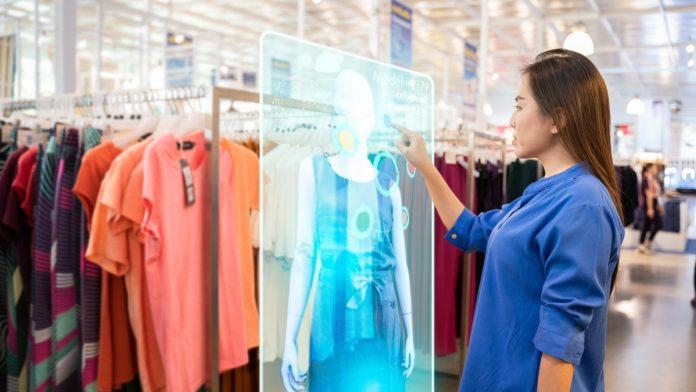Neal Stephenson, in his 1992 novel “Snow Crash,” had first coined the term “Metaverse.” He wrote about it at length, portraying the Metaverse as a virtual successor to the Internet. He also popularized the use of the word ‘Avatar’ in this context, as in the Metaverse, he saw people experiencing the virtual world and interacting as digital avatars of themselves.
Today, the modern iteration of the Metaverse is seemingly quite similar to what Neal Stephenson had envisioned. It represents an immersive and interconnected digital world that offers a seamless experience across various devices. The Metaverse also aims to combine elements of extended reality, such as VR and AR, as it expands on the Internet. It has seen significant interest and investments from tech giants like Facebook, Microsoft, and Nvidia. And though it is still evolving with greater inroads every year, several industries have already started to incorporate the Metaverse:
Industries driving the growth of the Metaverse
A study by Accenture about the trends in technology back in 2022 found that around 71% of the top executives believed that the Metaverse is a game changer for many businesses. Its immersive capabilities set it apart from the tech we see today.
And now, with industry leaders such as the companies in the field of gaming, the arts, healthcare and blockchain looking to position themselves as key players, let’s take a look at some of the industries involved in this growing ecosystem:
- Gaming and Esports:
The gaming industry has a strong level of base support for the Metaverse. It already attracts one of the most tech-savvy audiences, and it’s also the one medium where players are already engaged in exploring virtual worlds in online games. Platforms like Roblox and Minecraft have introduced expansive virtual environments where players can craft their experiences. And only recently, Epic has announced that their widely popular ‘Fortnight’ will be part of their platform’s Metaverse.
- Art and Fashion:
Artists and other fashion creators have also begun to utilize the Metaverse to display and exhibit their digital works. The virtual shared spaces offer opportunities to host virtual galleries and place art installations and fashion programs, including the use of augmented reality to provide unique experiences in interacting with the art. Popular brands like Nike, Jimmy Choo, Balenciaga, Gucci and other names in the industry have already entered the Metaverse with their products and accessories.
- Real Estate:
The Metaverse, along with all its features, also introduced the concept of virtual real estate for its online users. People could now buy, sell and develop ‘virtual’ pieces of land and even properties on those virtual tracts of land. Today, there are virtual land marketplaces and groups based around them where users can monetize and build anew on the lands they buy, with Sandbox, Cryptovoxels, Somnium and Decentraland being the more famous names within the communities.
Though the Metaverse is still in its early stages, its contributions to technology and impact are undoubtedly visible. Different companies and developers are working on standalone versions with their own set of features and use cases – ultimately driving the growth of the Metaverse.
The Impact of the Metaverse on Retail Experiences
The potential for the Metaverse to transform the retail industry is immense. It can change or add new ways through which people shop and interact with their preferred brands. For instance, here are some interesting use cases that we can expect from the Metaverse in retail:
- Personalized Shopping:
While using a platform created solely for a retailer by a Metaverse development company, the business can offer customized shopping experiences to shoppers. It can help leverage the data on their customers and their buying choices so that they can create virtual outlets that are personalized and recommends products that will match their previous interests and preferences.
- Virtual Try-on and Visualization:
Another way in which the Metaverse allows retailers to circumvent the limitations of having only physical stores is that users can try or at least visualize what a product will be like for them virtually. Customers can try on accessories and clothing, see how furniture will look in their homes, and access accurate representations of how the final product will appear or fit.
- Exclusive Virtual Events:
Exclusive events are pretty crucial for specific brands and businesses, and companies involved in all sorts of retail products. They can attract global audiences without needing to be limited by physical spaces. And generate a sense of excitement, community and exclusivity that is integral to improving customer brand loyalty.
- Social Interactions:
With people sharing their shopping time with friends, the Metaverse can be instrumental in establishing a shopping culture where users can socially interact and search for ways to collaborate while at it. Users can seek recommendations from their friends and their advice on specific products while shopping in real time – enhancing the shopping experience and the social experience of going to retail outlets with friends or colleagues.
- Virtual Assets:
By relying on a Blockchain development company, retail owners can also enable their customers to buy ‘Virtual Assets’ as a range of products from amongst their usual offerings. Customers can own virtual items from their favorite clothing lines or footwear company as digital collectibles in the Metaverse. Along with promoting the Metaverse ecosystem for their virtual stores, this will also open up new avenues for retail.
The Metaverse, as Neal Stephenson imagined today, is still perhaps more than just a stone’s throw away. Yes, more companies and industries are focusing on the Metaverse, but the impact of the Metaverse on an industry like retail is still in its early stages. Even so, many retail companies are currently exploring how to integrate the Metaverse as a platform in their business operations and strategy. As these potential benefits and use cases can revolutionize the way people connect with brands and the way we shop and engage in retail experiences.
